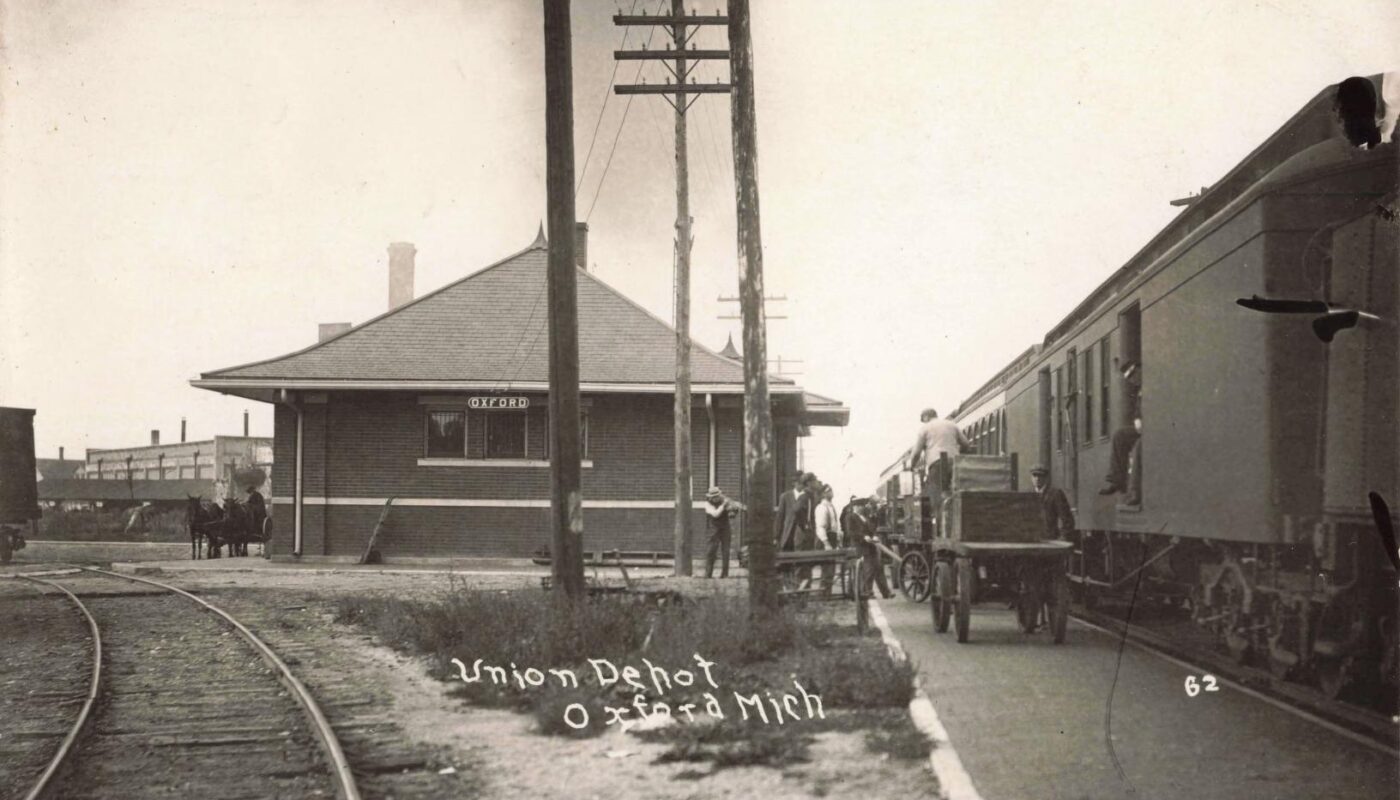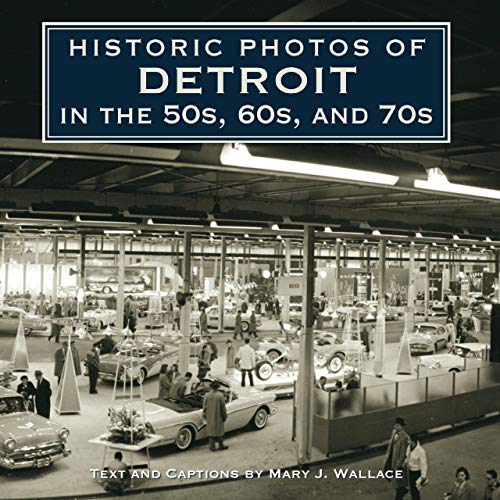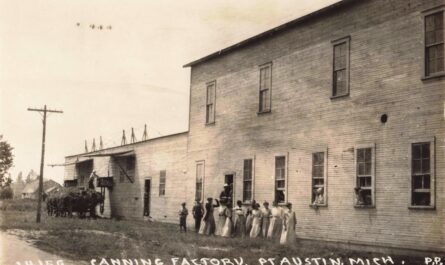Oxford, Michigan, carries a history shaped by industry, railroads, community gatherings, and even a brush with American pop culture. This small town in northern Oakland County evolved into a place where stone crushers and sand pits coexisted with church steeples and hotel balconies. Oxford Michigan history, is one of both work and community spirit.
Video – Oxford Michigan History – Fascinating Stories That Shaped a Small Town
Oxford’s Industrial Backbone
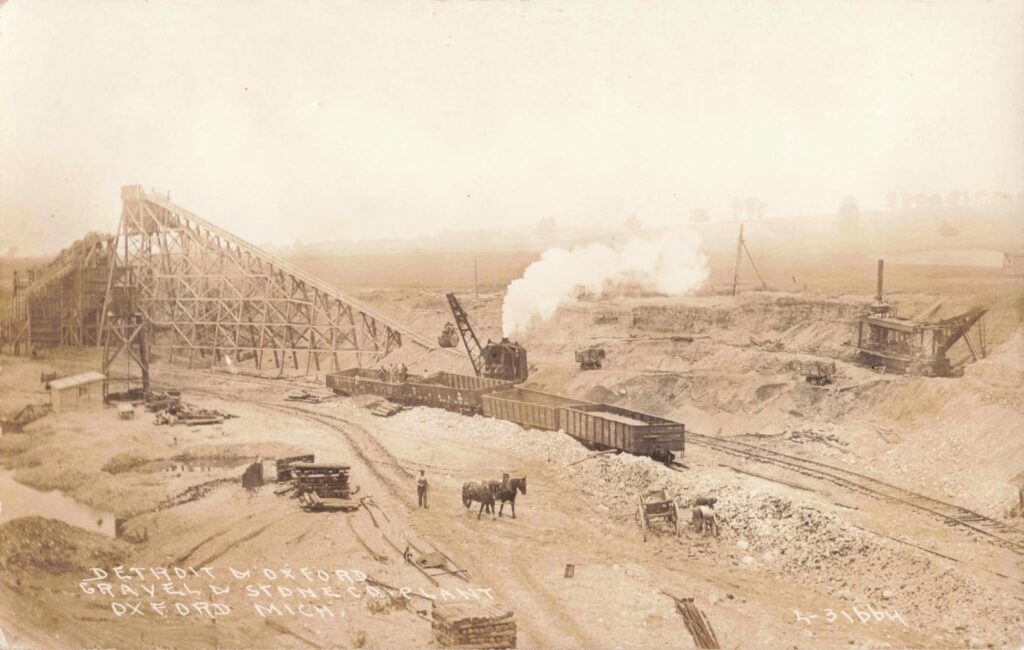
The history of Oxford, Michigan, is inseparable from its gravel and stone industry. By the early 1900s, companies like the Detroit & Oxford Gravel and Stone Company and later Ward’s Sand and Gravel transformed the area into one of the most important aggregate suppliers in the state. Massive crushers, conveyor systems, and steam shovels chewed through glacial deposits, producing the raw material for Michigan’s growing network of roads, bridges, and factories.
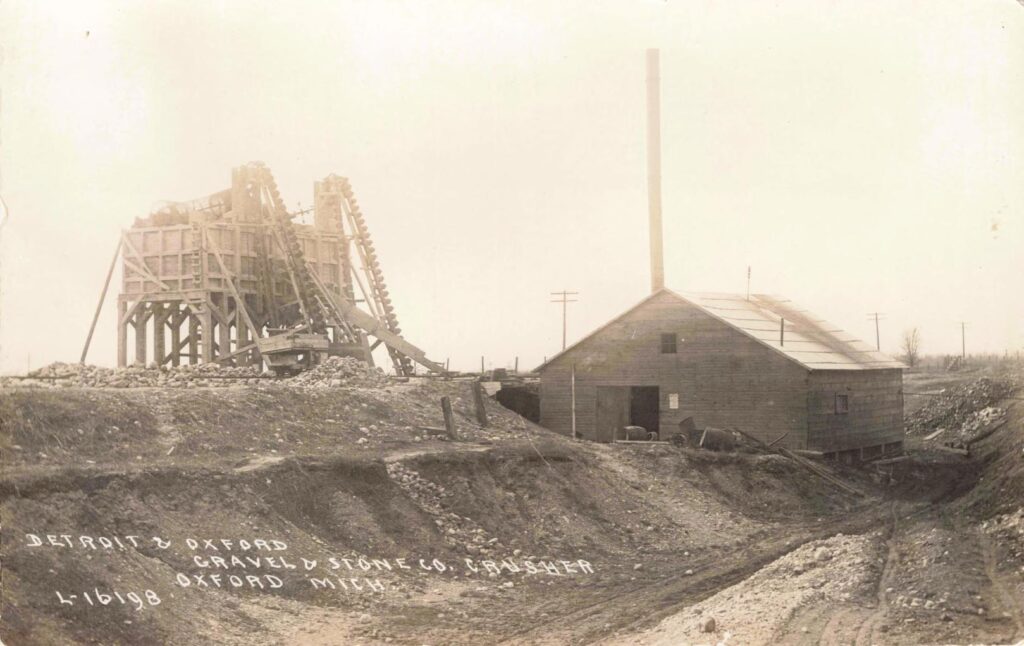
Photos from the era show towering crushers fed by chain-driven elevators, with rail sidings carrying crushed stone to market. Oxford’s gravel didn’t just stay in town. It formed the very foundation of Detroit’s expansion during the industrial age. At a time when Henry Ford’s assembly lines were reshaping global manufacturing, Oxford supplied the stone that made the roads on which cars would drive.
Railroads Connect Oxford
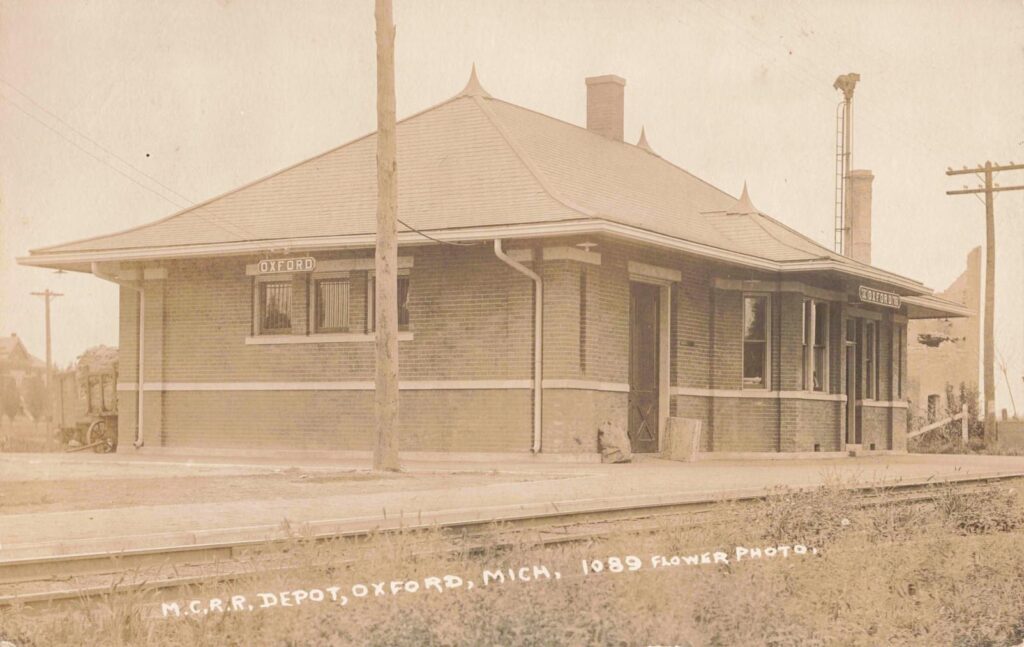
The Michigan Central Railroad Depot, built in 1889, was Oxford’s connection to Detroit and the wider Midwest. The depot was more than a station; it was a lifeline. Farmers shipped grain and livestock, manufacturers sent goods, and passengers boarded for trips that might take them as far as Chicago or New York.
For Oxford, the depot meant progress. Workers could commute, industries could expand, and the town could market itself as a modern community tied directly to Michigan’s biggest city. A photograph of the depot, with its pointed rooflines and sturdy brick walls, captures the sense of permanence that railroads offered.
Downtown Life in Oxford
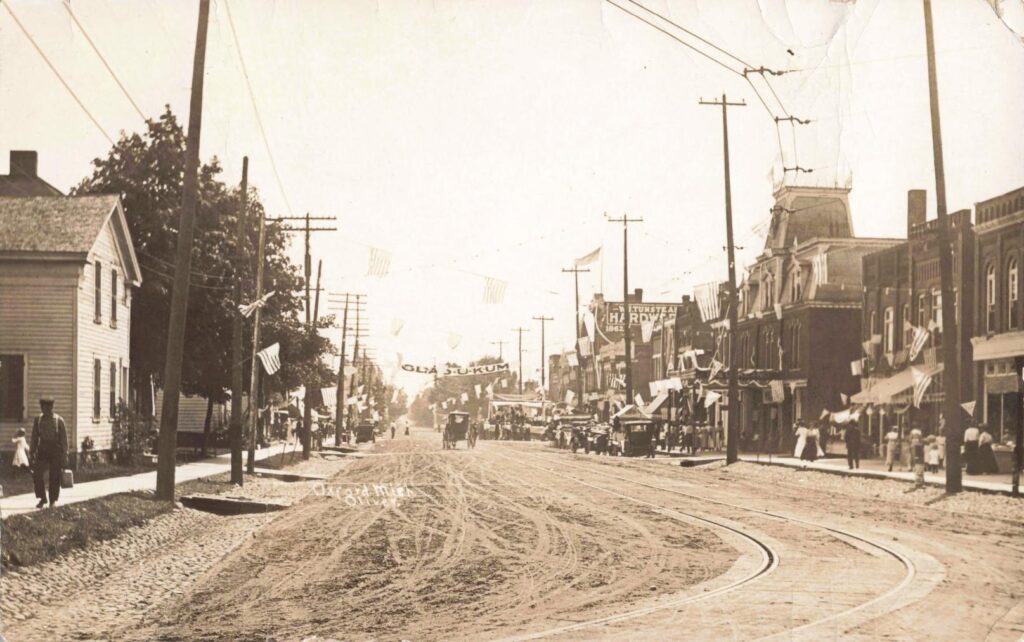
At the turn of the century, downtown Oxford bustled with energy. Brick storefronts lined Main Street, offering everything from groceries to clothing and hardware. The Oakland Hotel stood as a centerpiece of Oxford’s commercial district. With its tall mansard roof and balcony, the Oakland provided accommodations for traveling salesmen, families visiting from Detroit, and farmers in town for market day.
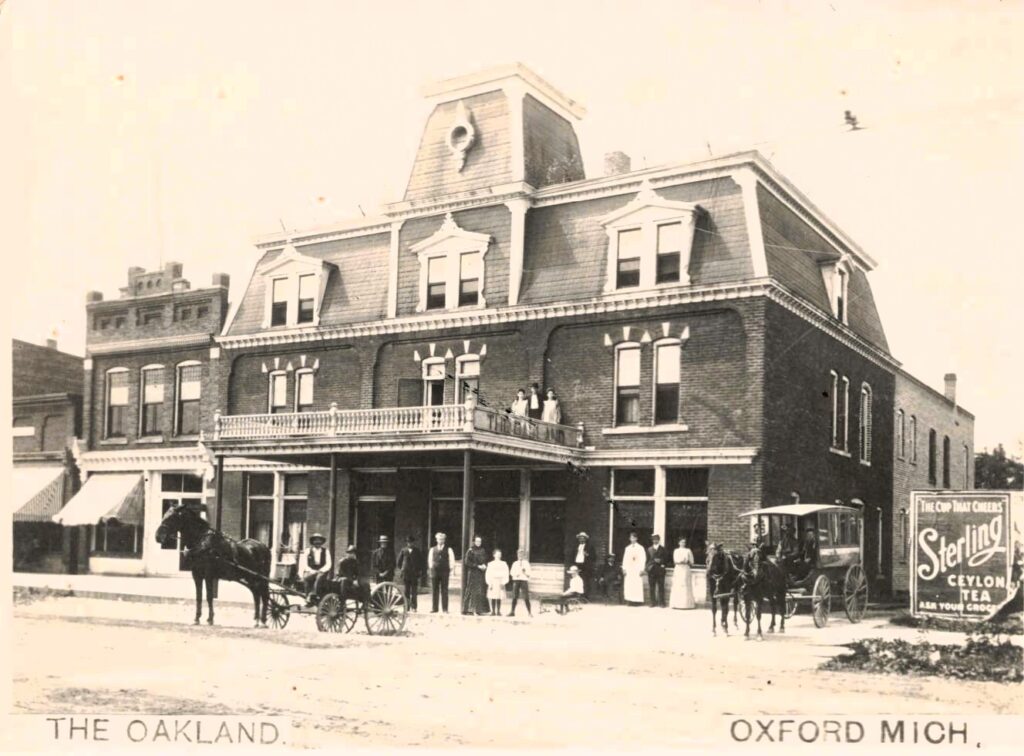
Businesses flourished in the blocks surrounding Oakland. Hardware stores, bakeries, and general merchants made downtown Oxford a thriving hub. Horses and wagons filled the streets, later giving way to early automobiles. The history of Oxford, Michigan, reflected a blend of rural character and urban ambition.
Camp Meetings and Community Spirit
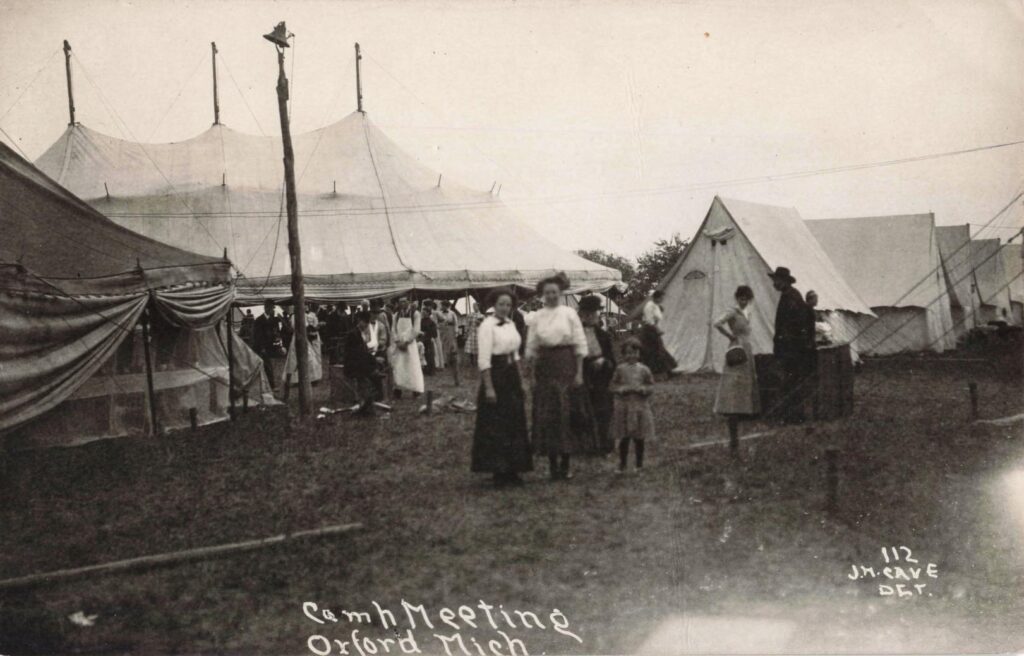
Industry and commerce may have shaped Oxford’s economy, but faith and fellowship gave the community its heart. Camp meetings were a highlight of summer life. Families pitched tents and gathered under large canvas tabernacles for days of prayer, song, and socializing.
Photographs show women in long skirts, men in Sunday clothes, and children wandering among the tents. These meetings provided more than religious renewal. They were a chance to see neighbors, exchange news, and enjoy a break from the grind of farm and factory work. For a community defined by labor, camp meetings offered balance and unity.
Images on this page may contain affiliate links in which we may receive a commission. See our affiliate disclosure for details.
Historic Photos of Detroit in the 50s, 60s, and 70s
Historic Photos of Detroit in the 50s, 60s, and 70s documents what a Metro Detroiter would have experienced through those decades, from the commonplace to a visit from John F. Kennedy.
The Lone Ranger Connection
Oxford also produced a voice that would echo across the nation. Brace Beemer, who lived in Oxford Township, became the radio voice of the Lone Ranger. From 1941 until 1954, Beemer’s booming baritone gave life to one of America’s most famous fictional heroes.
At a time when radio was the dominant medium, Beemer’s voice carried Oxford far beyond Oakland County. For millions of listeners, the sound of justice and adventure originated with a man who made his home in this Michigan town. The history of Oxford, Michigan, includes not only industry and commerce but also a place in America’s entertainment legacy.
Powering the Town
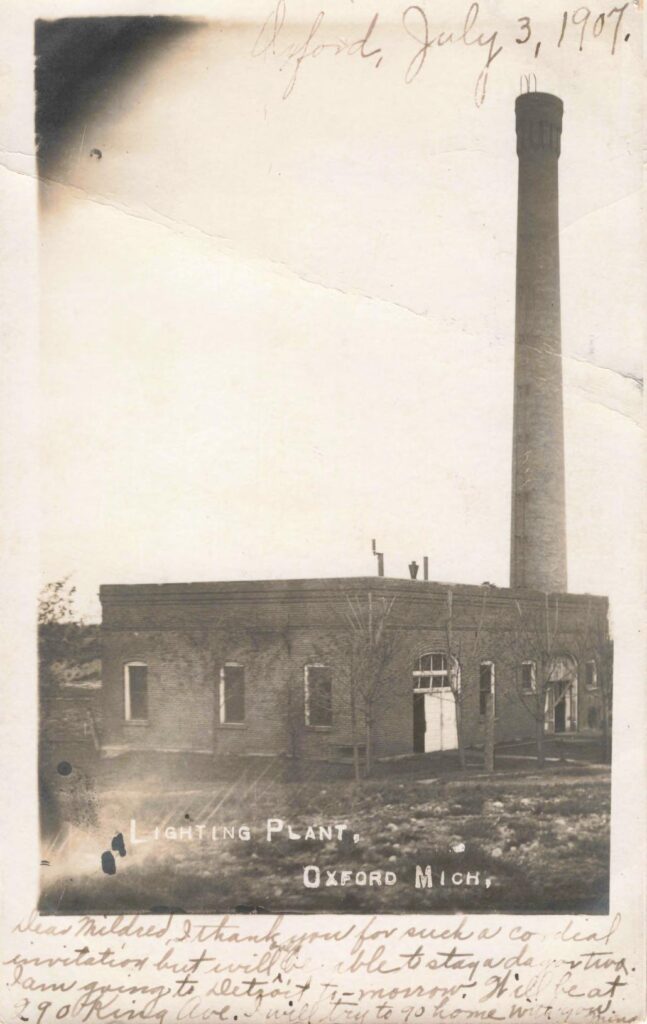
Oxford was also among the Michigan towns that built its own electric power infrastructure early. A 1907 photo shows the Oxford Lighting Plant, its tall smokestack rising over a brick powerhouse. Facilities like this allowed Oxford to light its streets, run its businesses, and bring modern conveniences into homes. Electricity supported both industry and quality of life, keeping Oxford competitive as the 20th century advanced.
Oxford’s Dual Identity
The history of Oxford, Michigan, is defined by its dual identity. On one hand, it was a working town—gravel pits, railroads, depots, and stone crushers all pointed to a community tied to industry. On the other hand, it was a gathering place—camp meetings, downtown hotels, and small-town businesses sustained community life.
Together, these elements made Oxford a model of Michigan’s broader story. Industry provided economic power, while faith, family, and culture gave meaning to the lives of the people who lived there.
Why Oxford’s History Matters Today
Looking back at Oxford’s past helps us understand how Michigan towns contributed to the state’s industrial rise. Gravel from Oxford built Detroit’s roads. Its depot tied the community to regional trade. Its hotels and shops created a small but vital economy. And its residents even shaped national radio culture.
The history of Oxford, Michigan, is not just local—it is part of Michigan’s development as an industrial state and cultural contributor. For today’s residents and visitors, these stories explain how Oxford became the place it is now, and why small towns matter in the larger American narrative.
Final Thought About Oxford Michigan History
From the stone crushers that shook the ground to the voice of the Lone Ranger carried through radios nationwide, Oxford’s story blends hard work, faith, and culture. It shows us how a small Michigan town could power industry, nurture community, and leave its mark far beyond its borders.
Sources
- “Brace Beemer as the Lone Ranger.” Promotional photograph, 1940s. Courtesy of WXYZ Radio Detroit Archives.
- “Detroit & Oxford Gravel and Stone Company, Oxford, Mich.” Photograph, ca. 1910. Private collection.
- “Lighting Plant, Oxford, Mich.” Postcard, 1907. Oakland County Historical Archives.
- “Main Street, Oxford, Mich.” Photograph, early 1900s. Oakland County Historical Archives.
- “Michigan Central Railroad Depot, Oxford, Mich.” Photograph, 1889. Michigan Central Railroad Company Records.
- “Oakland Hotel, Oxford, Mich.” Postcard, ca. 1910. Oakland County Historical Archives.
- “Oxford Camp Meeting, Mich.” Photograph, ca. 1910. Private collection.
- Ward’s Sand and Gravel Company. “Oxford, Mich. Plant.” Photograph, ca. 1940. Oakland County Historical Archives.

